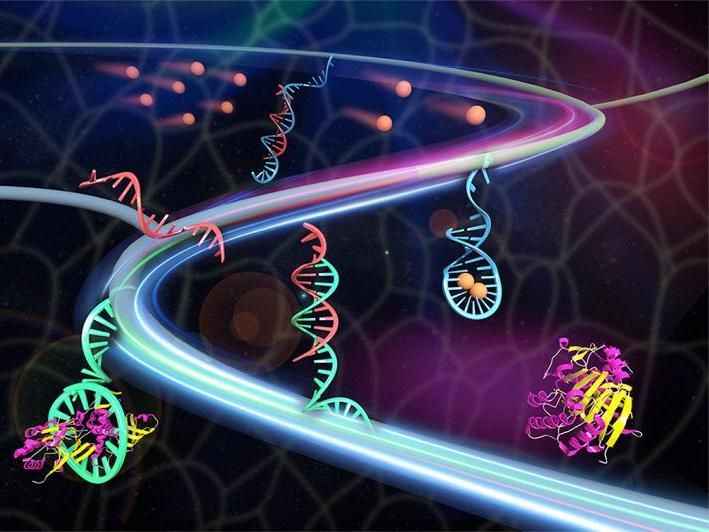Sarcoidosis: surface marker allows new diagnostic approaches
monocytes are white blood cells that are crucial to human immune defense. They are precursor cells of macrophages and dendritic cells and are circulating in the blood until they invade their respective target tissue where they defend the body against exogenous structures. So far, scientist categorized subtypes of monocytes only with regards to the surface markers CD14 and CD16* – however, this might change in the future.
Surface molecule as new marker
In the current study, the team headed by Prof. Loems Ziegler-Heitbrock was able to show that the analysis of an additional marker molecule called slan allows a more precise determination of monocyte subgroups. The results of the researchers show that this classification might also lead to a better understanding of certain diseases.
Targeting sarcoidosis
To this end Dr. Thomas Hofer and Dr. Marion Frankenberger, scientists of the Comprehensive Pneumology Center (CPC) at Helmholtz Zentrum München, analyzed blood samples of patients suffering from sarcoidosis. This disease, which often leads to damage of the patients’ lungs, is caused by a strong immune reaction and a concomitant formation of nodules in the tissue. The underlying mechanisms are still unclear but scientists are convinced that monocytes play a critical role. “Our data clearly indicate which subtype of the monocytes is involved in the disease”, explains Hofer. “In the patients’ blood we found significant numbers of monocytes, which were positive for CD16 and negative for slan.” According to Hofer, these cells might play a major role in sarcoidosis.
Also a role in brain disease
Moreover, in further experiments the scientist found that the marker slan might also serve to gain insights into a brain disease: “To test the predictive value of our new diagnostic tool, we also analyzed samples of patients suffering from HDLS**, a disease which leads to destruction of neurons of the brain”, said Frankenberger. “Our results show that a clearly definable subgroup of monocytes (CD16 positive/slan positive) was almost absent in the blood of these patients. Therefore we presume that these cells are important for normal brain function”, explains the Co-author.
“With this novel approach we now have a new diagnostic tool and we expect this to have an impact in many areas of medicine”, concludes principle investigator Ziegler-Heitbrock. “In the future we are planning to investigate whether slan might also lead to new insights with regards to other diseases.”
Original publication
Other news from the department science

Get the life science industry in your inbox
By submitting this form you agree that LUMITOS AG will send you the newsletter(s) selected above by email. Your data will not be passed on to third parties. Your data will be stored and processed in accordance with our data protection regulations. LUMITOS may contact you by email for the purpose of advertising or market and opinion surveys. You can revoke your consent at any time without giving reasons to LUMITOS AG, Ernst-Augustin-Str. 2, 12489 Berlin, Germany or by e-mail at revoke@lumitos.com with effect for the future. In addition, each email contains a link to unsubscribe from the corresponding newsletter.





















































